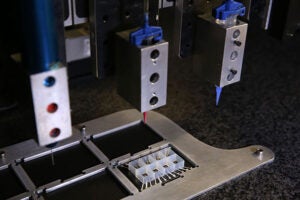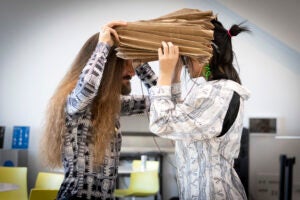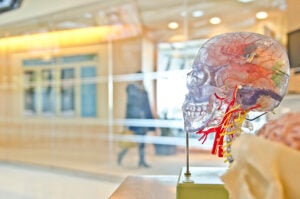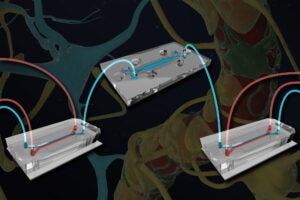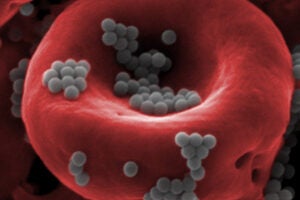Tag: Wyss Institute
-
Science & Tech
Face mask can help diagnose COVID-19
A team of researchers from the Wyss Institute has found a way to embed synthetic biology reactions into fabrics, creating wearable biosensors that can be customized to detect pathogens and toxins and alert the wearer.
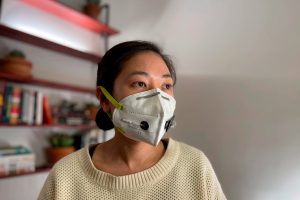
-
Science & Tech
Human organ chips enable rapid drug repurposing for COVID-19
A Wyss Institute-led collaboration has used the institute’s organ-on-a-chip technology to identify the antimalarial drug amodiaquine as a potent inhibitor of infection with SARS-CoV-2, the virus that causes COVID-19.
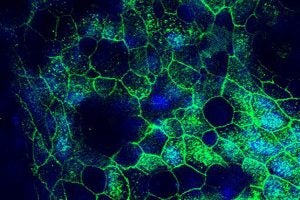
-
Science & Tech
DNA, assemble
A concept for seeded all-or-nothing assembly of micron-scale DNA nanostructures that could extend nanofabrication capabilities and enable creation of highly specific diagnostics.

-
Campus & Community
Looking back on Harvard’s COVID response one year later
Health experts, leaders, and staff offered input, helped devise Harvard’s coronavirus policy and procedures.
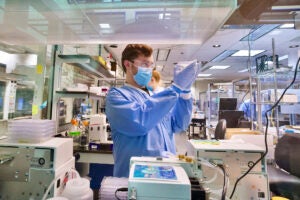
-
Health
Turning the problem of cancer metastasis into an opportunity
Delivering immune-stimulating nanoparticles to the lungs via red blood cells halts tumor growth in mice.
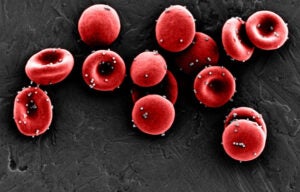
-
Science & Tech
Enzymatic DNA synthesis sees the light
Controlling a DNA-synthesizing enzyme with photolithographic methods from the computer chip industry facilitates multiplexed writing and storage of digital data in DNA.

-
Science & Tech
Deep learning takes on synthetic biology
Computational algorithms enable identification and optimization of RNA-based tools for myriad applications.

-
Science & Tech
Putting a crown on OMNIVAX
A biomaterials-based infection vaccine strategy shows first promise in eliciting immunity against SARS-CoV-2 and could be applied broadly to stave off infectious disease.
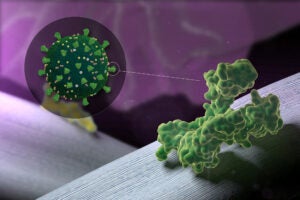
-
Science & Tech
7 million face shields and counting
The Wyss Institute made improvements to its face shields based on recommendations from area hospitals. Joining forces with a Mansfield, Mass.-based manufacturer, the institute’s face shields are now being produced at a rate of 400,000 a day.
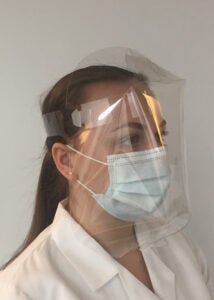
-
Science & Tech
Better vaccines are in our blood
New platform technology uses red blood cells to generate targeted immune responses in mice
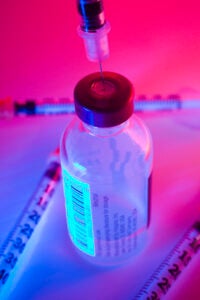
-
Campus & Community
‘The world changed, so we changed with it’
While the majority of the Wyss Institute is working remotely, a small but dedicated team is still coming into the lab to help treat and cure COVID-19.
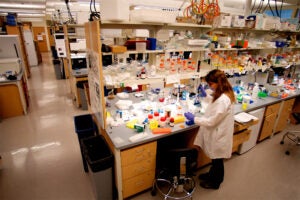
-
Science & Tech
The next decade in science
The Wyss Institute asked its faculty members to predict the biggest scientific advancements in their fields in the next 10 years.

-
Science & Tech
Real texture for lab-grown meat
Researchers are able to build muscle fibers, giving lab-grown meat the texture meat lovers seek.
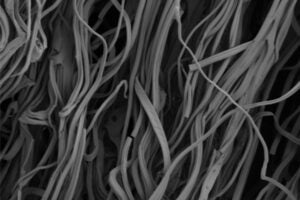
-
Science & Tech
A reliable clock for your microbiome
The microbiome is a treasure trove of information about human health and disease, but getting it to reveal its secrets is challenging, especially when attempting to study it in living subjects. A new genetic “repressilator” lets scientists noninvasively study its dynamics, acting like a clock that tracks how bacterial growth changes over time with single-cell…
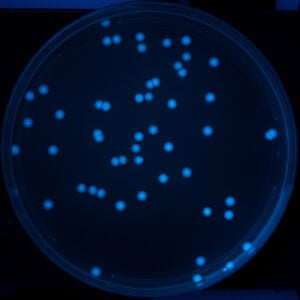
-
Campus & Community
Wyss donates third major gift
The Wyss Institute for Biologically Inspired Engineering at Harvard University announced today the latest gift of $131 million from its founder, entrepreneur and philanthropist Hansjörg Wyss, M.B.A. ’65.

-
Science & Tech
Laying some groundwork for environmental protection
The Wyss Institute has developed a sheet pile driving robot, Romu, that works in uneven terrain to build metal walls that can act as dams, retaining walls, or building foundations.
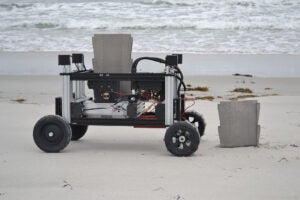
-
Science & Tech
A step closer to tissue-engineered kidneys
The Wyss Institute and Roche Innovation Center Basel in Switzerland have teamed up to create 3-D bioprinted proximal tubules beside functioning blood vessel compartments, closely mimicking the kidney’s blood-filtration system that removes waste products while returning “good” molecules, such as glucose and amino acids, back into the bloodstream.
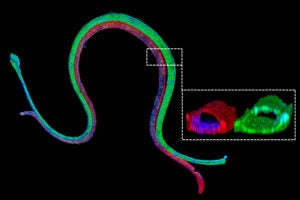
-
Health
Harnessing nature to beat cancer
Every year, more than 18 million people around the world are told, “You have cancer.” In the U.S., nearly half of all men and more than one-third of women will…
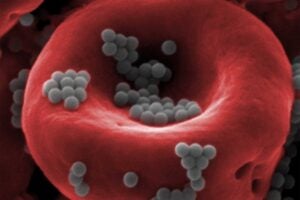
-
Health
A telephone for your microbiome
Genetic engineering allows different species of bacteria to communicate with each other in the gut of a living mouse, setting the stage for a synthetic microbiome.
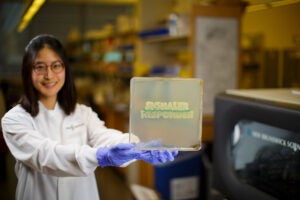
-
Science & Tech
‘Aliens’ of the deep captured
A new device developed by Harvard researchers safely traps delicate sea creatures inside a folding polyhedral enclosure and lets them go without harm using a novel, origami-inspired design.

-
Science & Tech
Eye-popping arachnids
Harvard researchers examined mysteries of color in the spider species Phoroncidia rubroargentea.
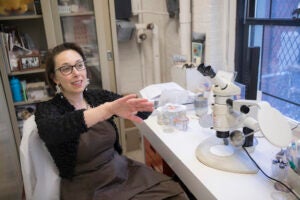
-
Campus & Community
Discovering a ‘richness’ in Harvard’s diversity
Harvard College senior Jacob Scherba’s own health and his sister’s affliction with a rare disorder influenced his merging engineering and medicine.

-
Health
Keeping the genetic code clean
Researchers have taken the first step toward removing unwanted cells by converting the CRISPR/Cas9 genome-engineering system into a genome-surveillance tool that removes newly occurring disease-associated mutations.
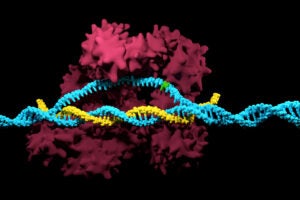
-
Science & Tech
Onward and upward, robots
The first article in a series on cutting-edge research at Harvard explores advances in robotics.
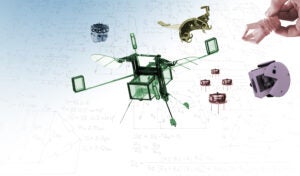
-
Science & Tech
No harm, no foul
Researchers at SEAS, the Wyss Institute, and Nanyang Technological University in Singapore have developed a nontoxic coating that deters marine life from attaching to surfaces in a breakthrough for maritime travel and commerce.
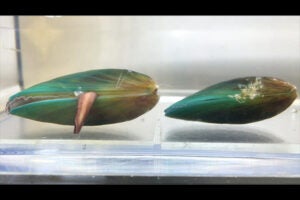
-
Health
Creating a smoking machine
Researchers at Harvard’s Wyss Institute have developed an instrument that smokes cigarettes like a human, and delivers whole smoke to the air space of microfluidic human airway chips. The machine may enable new insights into how nonsmokers and COPD patients respond to smoke.

-
Health
The first fully 3-D-printed heart-on-a-chip
A new approach to manufacturing organs-on-chips developed by Harvard researchers could cut the length and cost of clinical trials significantly.
